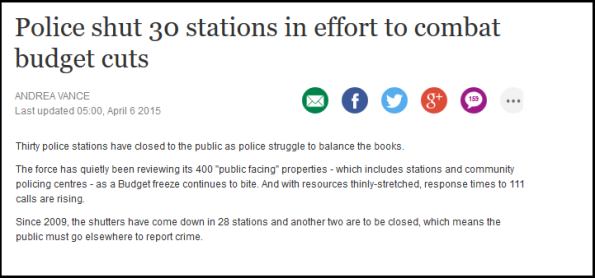Archive
Ripples in History
.

.
Question: What is the difference between Free Trade and Fair Trade?
Answer, later.
On 26 December 1991, the Soviet Union was formally dissolved. Two years earlier, the Berlin Wall had been physically torn down by jubilant Berliners. (The symbolism of the Berlin Wall as divisive and an affront to the human spirit seems not to have be well understood by the current demagogue-President of the United States, who is maniacally pursuing his own version of a Dividing Wall between neighbouring nations.)
The reasons for the collapse of the Soviet system have been well traversed. But in the end, it boiled down to a simple reality: people simply no longer believed in, or cared about, the Soviet brand of authoritarian “socialism” and apathy reigned (as related to me by Hungarians in the late ’70s and early ’80s).
As the former Soviet Union broke apart and it’s bulwark of Eastern European nations looked westward for their future, the fallout from the demise of one of the three great super-powers created ripples that would last for decades. Some of the unintended consequences are still not fully widely appreciated.
The United States, for a while, was hailed as the “the sole global superpower“. Writing in 2012, Mikhail Gorbachev said;
This event led to euphoria and a “winner’s complex” among the American political elite. The United States could not resist the temptation to announce its “victory” in the cold war. The “sole remaining superpower” staked a claim to monopoly leadership in world affairs. That, and the equating of the breakup of the Soviet Union with the end of the cold war, which in reality had ended two years before, has had far-reaching consequences. Therein are the roots of many mistakes that have brought the world to its current troubled state.
Declarations of an “American victory” were somewhat premature. In reality, with the rise of the Chinese economy and a resurgent Russia, the 21st Century would be anything but American.
The break-up of the former Soviet Union was also hailed as a “signal” to humanity that the experiment of collectivisation and state ownership of all means of production was a failure. As Indian Marxist, E.M.S. Namboodiripad wrote in 1991;
Today, however, talks are going on that not only have the socialist experiments in the USSR and Eastern Europe failed, but world socialism has collapsed. Adversaries of the socialist movement argue chat, far from the Soviet Union being the starting point of humanity’s transition from capitalism to socialism, the socialist countries in Eastern Europe including the Soviet Union have begun their march from socialism to capitalism. From this they go on to add that the theory of Marxism-Leninism itself has failed.
We Marxist-Leninists are above all realists and, as realists, we concede that the recent events in Eastern Europe and the Soviet Union are a major setback to world socialism. We are therefore engaging ourselves in the process of a deep examination of the reasons why these developments took place and whether the trend that manifested itself in these developments can be reversed.
But there were other strands of fallout. The term “socialism” became – as the word “fascism” was after 1945 – a disparaging epithet to throw at one’s political rival. Post-Soviet Union, “socialist” and “socialism” was equated with failure.
Socialism could no longer be seen as a credible alternative to the fad of neo-liberal, free-market, globalisation sweeping the world. Championed by Thatcher in the UK and Reagan in the US, it reached New Zealand’s shores in the mid-1980s.
The NZ Labour Party – supposedly a social democrat/socialist party for the working class – implemented radical liberalisation of trade, banking, commerce, labour laws. Economic “reforms” went hand-in-hand with social reforms such as the 1986 Homosexual Law reform in 1986, de-criminalisation of prostitution/solicitation in 2003, and the marriage equality act in 2013.
The Labour Party had been well and truly captured by apostles to Thatcher and Reagan. It could no longer conceivably be called a social democratic or socialist party.
Aside from the short-lived Alliance Party (which imploded in 2002 over New Zealand coalition government’s decision to participate in the invasion of Afghanistan), the only other Parliamentary parties that feasibly represented left-wing voters were the Mana Movement, led by MP Hone Harawira, and the Green Party. The Mana Movement itself was destroyed after an unholy alliance in 2014 between Labour, National, NZ First, and the Maori Party to support the Labour Party candidate, Kelvin Davis.
Which currently leaves the Green Party to represent the Left of Aotearoa New Zealand’s political spectrum.
The Green Party itself is currently under attack from both ends of the Body Politic in this country.
Some media pundits and the Right are calling for the Greens to return to their “environmental base” whilst the Left are decrying the Greens as not left-wing enough.
.

.
Meanwhile, the rise of populism and the far right paralled the spread of neo-liberal “reforms” around the world.
In 1998, only two nations in Europe – Switzerland and Slovakia – had governments made up in part by populist parties.
By February of this year, the number of European nations with populist parties in coalition governments had increased to more than eleven. (More, if countries like Russia and Ukraine are included.)
Europe’s populism has been matched with Trump in the United States; Erdogan in Turkey; Duterte in the Philippines; Jair Bolsonaro in Brazil, etc. Throughout the world, populist parties – mostly (though not always) of a right-wing persuasion – have been on the rise.
The most obvious causes for the rise in right-wing populism has also been well-canvassed;
Most have tapped into a backlash against immigration and a globalized economy that many people feel has left them behind..
[…]
The common thread dates back to the 2008 financial crisis, which opened the door for many populists. Rising inequality and the perception of an unjust — if not corrupt — response to the crash eroded trust in the ability of established leaders to address shifts in the global economy, including technological change and the rise of China.
In Hungary, right-wing populism has taken on a distinct air of neo-fascism;
The biggest advances have been made in central and eastern Europe. All four so-called Visegrád countries are governed by populist parties including Viktor Orbán’s Fidesz in Hungary – where populist parties secured 63% of the vote in this year’s elections – and Jarosław Kaczyński’s Law and Justice in Poland.
Both parties only started showing their true colours – populist, culturally conservative, authoritarian – after they were first elected. They are now attacking core liberal institutions such as the independent judiciary and free press, increasingly defining national identities in terms of ethnicity and religion and demonising opponents, such as the Hungarian-born Jewish financier George Soros, in language reminiscent of the 1930s.
The public backlash against immigration, globalisation, with a concomitant loss of well-paying jobs, and the flow of wealth to the top 1 Percent is well known, understood, and documented;
.

.
What is not well understood is why voters have generally turned away from traditional left-wing parties and policies, and increasingly voted for right-wing (and often far right-wing) populist parties.
In Europe, the backlash against orthodox neo-liberalism/globalisation resulted not in the election of a left-wing government – but in Brexit. In choosing to shun the European Union, British voters by a small majority literally walked away from the continental bloc.
Whether consciously or sub-consciously, this blogger contends the public view the Left as having failed the ultimate test. The former Soviet Union – a super-power in the 20th century rising from a feudalistic monarchy to becoming a nuclear-armed, space-faring nation with global influence and aspirations – failed. And it failed dramatically with the whole world watching.
Since 1989/91, the televised spectacle of the collapse of the former Soviet Bloc has imprinted itself in the psyche of most of the world’s population. The message was made abundantly clear as the Berlin Wall came down; the Red Army retreated from Eastern Europe; and President Gorbachev passed laws making his Soviet Presidency redundant: the Left were unable (or unwilling) to staunch the neo-liberal/globalist orthodoxy.
Indeed, in almost every country, neo-liberalism/globalisation had ‘captured’ supposedly social democratic or centre-left parties such as the Labour Party in UK; the Democrats in US; Labour in Aotearoa New Zealand and Australia, etc.
Thus the parliamentary wing of social democratic/centre-left offered no solutions. They were seen by the voting public as part of the problem.
If Nature abhors a vacuum, the same applies to the Political Environment. The fall of the former-Soviet Union created a political vacuum on the established Right-Left continuum.
That political vacuum would soon be filled as people sought solutions to what many perceived as an attack on their national identities; falling standard of living; unfulfilled aspirations; unresponsive traditional political parties, and the rise and rise of a tiny wealthy elite.
So it came to pass. The vacuum was filled, as it was in the 1920s and ’30s, by populist parties and demagogic leaders who offered quick-fix, simplistic solutions. Cue: the trumpets of nationalism, racism, intolerance of minorities, and the emboldening of even worse extremism on the far-right and alt-right.
To compound the worsening political climate, the Left continued to make itself largely irrelevant to the everyday struggles of working and middle class New Zealanders.
A cursory look at blogposts on The Daily Blog, for example will quickly reveal that up until recently (17 April, to be precise) most blogposts were fixated on the issue of “free speech” and the Green Party. Green Party MP, Golriz Ghahraman, to be concise.
Meanwhile, out in the Real World…
… teachers, mid-wives, and medical professionals were on strike for better pay.
… the environment continued to be polluted out of existence.
… greenhouse gas emissions continued to rise.
… mental health continued to be in crisis.
… savage covert cuts to disability funding were planned.
… homelessness was still a ‘thing‘.
… our security apparatus failed us spectacularly by spying on the wrong people.
… the coalition government buckled to property speculators.
For many on the Left, though, the priority was “free speech”.
If ever there was an instance of a public “Meh!” moment, this was it.
Just as the GCSB, NZSIS, NZ Police, and Uncle Tom Cobbly were all distracted by Greenpeace, environmental activists, journalists, bloggers, Maori activists, Christchurch Earthquake survivors, et al, instead of keeping an eye on white supremacists/neo-fascists – the left-wing blogosphere was seemingly distracted by it’s own Shiny Thingy.
The recent furore on the issue of “free speech” and the Green Party’s call to address hate speech appeared to suggest that Aotearoa New Zealand was about to become a quasi-Stalinist state with bloggers and journalists rounded up and despatched to re-education camps on Stewart Island. The unhealthy obsession with the Green Party – Green MP, Golriz Ghahraman, to be precise – drew anger usually reserved for the likes of Don Brash, Mike Hosking, Duncan Garner, et al..
Although, with considerable grim irony, some on the Left were quite happy to protect the “free speech” for the likes of Southern, Molyneux, Brash, et al, whilst launching tirades against Ms Ghahraman.
There remains an ongoing systematic vilification of Ms Ghahraman instead of addressing the issues surrounding “free speech/hate speech”. Some of the vitriol heaped on Ms Ghahraman took on sinister under-tones of misogyny and racism.
That some of the personal abuse has appeared on left-wing forums is especially troubling.
Yet, despite hysterical screams of outrage that the Green Party was advocating stifling “free speech”, a closer examination of their proposal was anything but.
In a recent post on social media, Ms Ghahraman posed a valid question;
“You’re not allowed to harass, or to make up lies that harm an individual. It’s against the law.
However you are allowed to spread hate and lies about a group of people based on their religion or gender, without consequence.
[…]
So why are individuals protected from defamation, or harassment, but whole groups of people aren’t?”
The capitalist system is built on the primacy of individualism, property ownership, and reputational interests (which has a direct bearing on an individual’s commercial activities).
To protect that fundamental underpinning of capitalism, the rights of the capitalist individual was elevated above all else. Including above the needs of society itself.
In October 1987, British Prime Minister, Margaret Thatcher – architect of Britain’s neo-liberal, free-market “reforms” – was famously quoted in an interview saying;
“And, you know, there is no such thing as society. There are individual men and women, and there are families. And no government can do anything except through people, and people must look to themselves first…”
Western law reflects the capitalist precept that the rights of individuals are recognised – but groups of people are not. (Class-action lawsuits are a rare exception, usually reserved for physical loss, such as mechanical failures, financial malfeasance, medical botch-ups, etc.)
Under the capitalist system, social groups are a nullity under the law.
Recent high-profile public defamation lawsuits have centered on Matthew Blomfield, Earl Hagaman, and Colin Craig.
All three cases involved lawsuits claiming defamation; suffering because of harmful untrue public statements, and sought awards for damages.
The case of Mr Blomfield successfully suing far-right blogger, Cameron Slater, was recently commented on The Daily Blog. Comments posted after the main article generally approved of businessman, Matthew Blomfield’s victory.
Yet, the right to sue does not extend to groups based on religion, ethnicity, gender/sex, etc.
That privilege is reserved solely for individuals. Those individuals are usually wealthy, white, and not women.
That was the point Green MP, Golriz Ghahraman was making. Or trying to make, as the issue was drowned out amidst a hysteria that veered well into moral panic.
It is salient to note that “free speech” advocates remain mostly silent on this issue.
Free speech is not absolute. A person can be hauled before a court and sued for considerable sums of money if found guilty of defamation.
The legal system protects the rights of individuals. Groups – not so fortunate. Because as pointed out above, capitalism is about the Individual. Groups – not so much.
At the beginning of this blogpost, I posed the question: What is the difference between Free Trade and Fair Trade?
Free trade is unfettered. It protects and serves the interests of corporations. The goal is to maximise profits for individuals (shareholders) at the expense of all else.
Fair trade serves the interests of communities, as well as individuals in those communities. The goal is to better the lives of people, but not at the expense of all else (eg, the environment, workers’ rights, etc).
The Left prides itself on the point of difference from the Right in that we act for the collective good. The primacy of the Individual, at the expense of the greater good, is not something we generally look favourably upon.
We want our trade to be fair. Should we expect less for our public discourse?
It is a contradiction to our much vaunted progressive values that we extend the right to Individuals to legally defend themselves in a Court of Law against defamation and harm – yet deny that same right to groups who might also suffer defamation and harm.
We talk the talk when it comes to collective action for the greater good. We demand the right for workers to act collectively and join unions. We demand adequate taxation to pay for public education, healthcare, housing for the poor, environmental protection, support services for the disabled, etc, etc.
Yet, when it comes to walking the walk to extend the right to legal protections for groups – some (many?) on the Left balk at extending the same legal rights extended to Individuals – usually wealthy businessmen or politicians in positions of power.
The irony is inescapable; that some on the Left seem wholly comfortable with wealthy businessmen being privileged with a legal right to defence against harmful speech that entire groups of people are not.
If we, as a society, are willing to have defamation laws available, they must be available to everyone, groups as sell as wealthy individuals. The law must be for all. Or not at all.
Those days of privilege can no longer be tolerated.
.
.
.
References
CNN: Fall of the Berlin Wall – On 29th anniversary, it’s a different world
Norwich University: Exploring 5 Reasons for the Collapse of the Soviet Union
Noam Chomsky: Barack Obama and the ‘Unipolar Moment’
The Nation: Is the World Really Safer Without the Soviet Union?
E.M.S. Namboodiripad: ‘An Experiment that Failed’? (alt. link)
Huffington Post: Trump Knocks Socialism And Bernie Sanders Does Not Look Pleased
NZ Herald: Prostitution decriminalised, brothels to be licensed
Scoop: Why The Alliance-Left Rebelled
Fairfax media: Winston Peters backs Labour’s Kelvin Davis
NZ Herald: Election 2014 – Hone’s call to arms after Winston backs Kelvin
Fairfax media: Kelvin Davis blasts Mana Party (alt. link)
Mediaworks/Newshub: Lloyd Burr – The Greens have lost their way
The Daily Blog: If you think that the NZ Green Party (who are just as wedded to neoliberalism as Labour is) are your new political home, you are delusional
The Guardian: How populism emerged as an electoral force in Europe
Bloomberg: The Rise of Populism
Wikipedia: Right-wing populism
Vox: Forms and sources of inequality in the United States
The Irish Times: Conor O’Clery – Remembering the last day of the Soviet Union
Radio NZ: ‘No mandate’ for capital gains tax – PM
Fairfax/Stuff media: Secondary school teachers to strike, citing lack of patience with contract negotiations
Radio NZ: Midwives to strike next week
Fairfax/Stuff media: Resident doctors call back planned pre-Easter strike
Mediaworks/Newshub: New Zealand’s ‘dirtiest industry’ blasted over environment report
Climate News Network: Human carbon emissions to rise in 2019
Noted/The Listener: Youth mental health is in crisis and NZ is failing to keep up
NZ Herald: Limited showers, no meal prep – ‘Ruthless’ plans to cut disabled care revealed
NZ Herald: New report reveals the sharp end of homelessness in Wellington
Mediaworks/Newshub: Jacinda Ardern announces Royal Commission into security agencies after Christchurch attack
Twitter: Golriz Ghahraman – Hate speech – 8:47am 17 April 2019
Margaret Thatcher Foundation: Woman’s Own – interview – 31 October 1987
Justrade: Prof Jane Kelsey & Jim Stanford
Additional
Green Party Aotearoa: Golriz Ghahraman speech in response to the Christchurch mosque terror attacks
Fairfax/Stuff media: MP lacks credibility in urging hate speech law
NZ Herald: Political Roundup – Outlawing hate speech and hate crimes
NZ Herald: Christchurch mosque shootings – Does New Zealand need hate speech laws after terror attacks?
Other Blogposts
Pundit: Doesn’t hate-speech need to include some hatred?
The Standard: Reflections on Free Speech and Public Discourse
The Standard: The Green Party on the Mosque murders
TDB: Hone Harawira – Blaming black boys for a white boy massacre
TDB: Recognising Hate Speech When You See It.
Previous related blogposts
National – the Party of free speech?! Yeah, right.
“Free speech” – The Rules according to the Right
The Christchurch Attack: is the stage is set for a continuing domino of death?
.
.
.

.
This blogpost was first published on The Daily Blog on 23 April 2019.
.
.
= fs =
The seductiveness of Trumpism
.
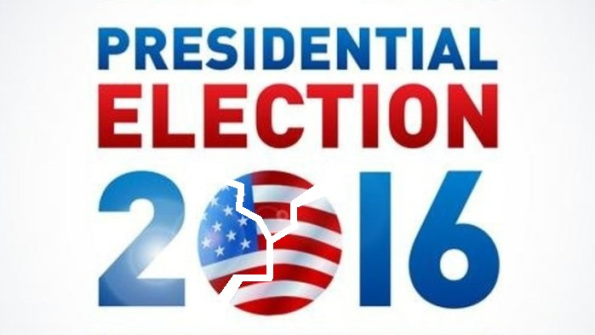
.
The 5 percent of Americans with the highest incomes now account for 37 percent of all consumer purchases, according to the latest research from Moody’s Analytics. That should come as no surprise. Our society has become more and more unequal.
When so much income goes to the top, the middle class doesn’t have enough purchasing power to keep the economy going without sinking ever more deeply into debt — which, as we’ve seen, ends badly.
[…]
The real reason for America’s Great Regression was political. As income and wealth became more concentrated in fewer hands, American politics reverted to what Marriner S. Eccles, a former chairman of the Federal Reserve, described in the 1920s, when people “with great economic power had an undue influence in making the rules of the economic game.” With hefty campaign contributions and platoons of lobbyists and public relations spinners, America’s executive class has gained lower tax rates while resisting reforms that would spread the gains from growth.
Yet the rich are now being bitten by their own success. Those at the top would be better off with a smaller share of a rapidly growing economy than a large share of one that’s almost dead in the water. – Robert Reich, New York Times, 3 September 2011
.
“Neoliberalism as never been, and is not, a coherent set of economic principles, the presence or absence of which in any given policy prescription determines the strength or weakness of its ideological credentials. Indeed, neoliberalism, far from being some sort of neo-classical economic crusade, is what it has always been: the fearsomely coherent political project of global capitalism’s ruling elites.
Its anti-state/free market propaganda notwithstanding, neoliberalism’s purpose has always been to use the coercive power of the state to thwart and/or reverse any and all attempts to empower the many at the expense of the few.
As Professor David Harvey notes in his A Brief History of Neoliberalism:
“Redistributive effects and increasing social inequality have in fact been such a persistent feature of neoliberalisation as to be regarded as structural to the whole project. Gérard Duménil and Dominique Lévy, after careful reconstruction of the data, have concluded that neoliberalisation was from the very beginning a project to achieve the restoration of class power”.” – Chris Trotter, Bowalley Road, 30 May 2015
.
“…the share of population living in poverty is at a very high level. The latest data shows almost 15 percent of the American population of 46.7 million people living in poverty, and those numbers are even higher, if you concentrate on certain groups, particularly minority, single parents, especially female-headed families, and it is heavier for young people and those with disability.
So, with such large share of the population living below the poverty line, this has important macroeconomic issues, let alone the concern that is of a more political nature, which we will not address. But if we look at the macroeconomic impact, not only does poverty create significant social strains, it also eats into labor force participation, and undermines the ability to invest in education, to invest in health, to invest in training, and by holding back economic and social mobility it creates not only a poverty impact on this generation, but it certainly can make it more sustainable inter-generationally.” – Christine Lagarde, Managing Director, IMF, 22 June 2016
.
In America, the full impact of a neo-liberal agenda hit Kansas so harshly that comedian/commentator, Seth Meyer, was unflinching with his scathing, mocking, satire at the travesty that had resulted;
.
.
After his election in 2010, Republican Kansas state governor, Sam Brownback, made massive cuts personal and business income taxes on the neo-liberal premise that low (and in some cases, nil) taxes would result in massive job-creation and increased economic activity by local businesses.
The tax-cuts were heavily supported by right-wing billionaire Koch Brothers;
Kansas also completely erased the income tax bills for the owners of certain “small” businesses, totaling 330,000 by this year and including a host of subsidiaries of Wichita-based Koch Industries. The Koch-funded organization Americans for Prosperity helped Brownback push the bill and has remained a staunch defender of the changes.
The result was utterly predictable;
The predicted job growth from business expansions hasn’t happened, leaving the state persistently short of money. Since November, tax collections have fallen about $81 million, or 1.9 percent below the current forecast’s predictions.
[…]
Last month, Brownback ordered $17 million in immediate reductions to universities and earlier this month delayed $93 million in contributions to pensions for school teachers and community college employees. The state has also siphoned off more than $750 million from highway projects to other parts of the budget over the past two years.
School teachers, college employees, the State University, schools, poverty-programmes, medicare, and other services all faced budgetary cuts.
The business website, Bloomberg, was less than impressed;
Kansas has lagged Nebraska in job creation since 2011, and the gap has widened since late 2014. Instead of adding the 25,000 jobs a year that Brownback promised, Kansas actually lost 5,400 jobs over the 12 months ending in February.
The author, Justin Fox, made the eye-brow-raising under-statement of the year by declaring;
This doesn’t look great for Kansas.
There’s an age-old saying for such under-statements. Click here.
Little wonder that Fox headed his article; “Kansas Tried Tax Cuts. Its Neighbor Didn’t. Guess Which Worked“.
The owners/editor of Bloomberg appeared to ‘freak out’ at the prospect of publishing a story so utterly revealing of such an epic fail of neo-liberal dogma. The editor/owner posted at the bottom of Fox’s article;
This column does not necessarily reflect the opinion of the editorial board or Bloomberg LP and its owners.
Of course not. That might be embarrassing. Having to admit to the Masses that one of neo-liberalism’s main tenets is actually bullshit, is not a good look.
Even Governor Brownback’s fellow Republicans were panicking, as they faced re-election this month, and the wrath of voters;
Now many of the same Republicans who helped pass Brownback’s plan are in open revolt, refusing to help the governor cut spending so he can avoid rolling back any of his signature tax measures.
[…]
“Let him own it,” Republican Rep. Mark Hutton said. “It’s his policy that put us there.”
[…]
“We’re growing weary,” said Senate President Susan Wagle, a conservative Republican from Wichita. While GOP legislators still support low income taxes, “we’d prefer to see some real solutions coming from the governor’s office,” she said.
In an example of how Republican’s take personal responsibility, Governor Brownback told journalists who was to blame for his “real live experiment“;
“You’ve got some global issues that are going on that we have absolutely no control over.”
That’s how you take Personal Responsibility: blame others.
As Kansas is slowly bankrupted, Trump appears not to have learned from Brownback’s economic ineptness, saying;
“Under my plan, I’ll be reducing taxes tremendously, from 35 percent to 15 percent for companies, small and big businesses. That’s going to be a job creator like we haven’t seen since Ronald Reagan. It’s going to be a beautiful thing to watch. Companies will come. They will build. They will expand. New companies will start. And I look very, very much forward to doing it.” – Donald Trump
Trump’s plan to cut taxes mirrors the Republican “experiment” in Kansas. It simply remains unclear why Trump believes the results will be any different.
Meanwhile, here in New Zealand, the re-distribution of wealth up-ward, through successive tax-cuts for the richest, echoed that taking place thousands of kilometres away in a central US state.
In 2009 and 2010, National cut taxes and increased gst. (There have been seven tax cuts since 1986.) This shifted wealth up-ward to higher-income earners.
As government revenue fell, budget cuts to spending on services followed;
.
.
.
.
.
.
.
.
Even as recent tax cuts resulted in wealth re-distributed upward; wage growth remaining low or stagnant; and social services reduced – New Zealanders are still not facing the dire economic and social hardship faced by our American cousins.
In September 2011, forward-thinking American economist Robert Reich explained how a worsening economic crisis in the US was affecting the middle classes;
Some say the regressive lurch occurred because Americans lost confidence in government. But this argument has cause and effect backward. The tax revolts that thundered across America starting in the late 1970s were not so much ideological revolts against government — Americans still wanted all the government services they had before, and then some — as against paying more taxes on incomes that had stagnated. Inevitably, government services deteriorated and government deficits exploded, confirming the public’s growing cynicism about government’s doing anything right.
Some say we couldn’t have reversed the consequences of globalization and technological change. Yet the experiences of other nations, like Germany, suggest otherwise. Germany has grown faster than the United States for the last 15 years, and the gains have been more widely spread. While Americans’ average hourly pay has risen only 6 percent since 1985, adjusted for inflation, German workers’ pay has risen almost 30 percent. At the same time, the top 1 percent of German households now take home about 11 percent of all income — about the same as in 1970. And although in the last months Germany has been hit by the debt crisis of its neighbors, its unemployment is still below where it was when the financial crisis started in 2007.
How has Germany done it? Mainly by focusing like a laser on education (German math scores continue to extend their lead over American), and by maintaining strong labor unions.
THE real reason for America’s Great Regression was political. As income and wealth became more concentrated in fewer hands, American politics reverted to what Marriner S. Eccles, a former chairman of the Federal Reserve, described in the 1920s, when people “with great economic power had an undue influence in making the rules of the economic game.” With hefty campaign contributions and platoons of lobbyists and public relations spinners, America’s executive class has gained lower tax rates while resisting reforms that would spread the gains from growth.
Yet the rich are now being bitten by their own success. Those at the top would be better off with a smaller share of a rapidly growing economy than a large share of one that’s almost dead in the water.
The economy cannot possibly get out of its current doldrums without a strategy to revive the purchasing power of America’s vast middle class. The spending of the richest 5 percent alone will not lead to a virtuous cycle of more jobs and higher living standards. Nor can we rely on exports to fill the gap. It is impossible for every large economy, including the United States, to become a net exporter.
Reviving the middle class requires that we reverse the nation’s decades-long trend toward widening inequality. This is possible notwithstanding the political power of the executive class. So many people are now being hit by job losses, sagging incomes and declining home values that Americans could be mobilized.
And mobilised they have been.
Whatever one thinks of Republican presidential candidate, Donald Trump, he has tapped into the psyche of the disaffected; the disenchanted; and the dispossessed. And they are legion in number.
According to US Census Bureau, there are some 43.1 million Americans currently living in poverty – 13.5%. (The Bureau states that poverty has fallen by 3.5 million people since 2014.)
The lives of ordinary Americans is now stressed and wretched, as Australia’s ABC journalist, Elle Hardy recently reported;
When fun-loving 34-year-old George Tabor died suddenly in the town of Tifton in America’s Deep South, his family was bereft.
It confirmed again that the American Dream is a vision that’s moved beyond the reach of millions of its citizens.
George’s family struggled with the immense grief of his loss, but they were also plunged into a financial crisis, not knowing how they could fund his funeral or medical bills.
“The very first day, as we were dealing with the fact that he’s gone, the first thing that was in my mind was that all these bills were about to fall on us,” his older sister Doris Stafford, 36, said.
George and his sisters all worked. Their mother had worked her whole life too. Yet, as workers on minimum pay rates, just coping with weekly needs is an endless treadmill.
George Tabor was in goodhealthbefore he suddenly fell ill.(Supplied: Doris Stafford)Having savings to buffer sudden emergencies, or even a plan for a more secure future, is a story from Fantasyland for this family, and for up to nearly 70 per cent of Americans, according to a recent survey.
In this election year, as the anger of the marginalised and threatened has taken centre stage, it’s rocked the established verities of American political culture.
The IMF warned in June of social strains if the US fails to address soaring rates of poverty, in this richest of First World economies.
On the ground, it’s the immediate daily strains that occupy people’s minds.
George’s sister Sherry Smith, 31, began receiving George’s medical bills at the apartment they’d shared. Meanwhile, Doris was working out how to come up with $US5,100 ($6,610) for his funeral.
For workers earning about $US290 ($375) a week, the challenge is astronomical.
Robert Reich’s simple infograph (below) demonstrates convincingly that pay rose with productivity until the late ’70s /early ’80s. At that point in our global history, Thatcherism and Reaganism impacted on their respective nations, the UK and USA.
.
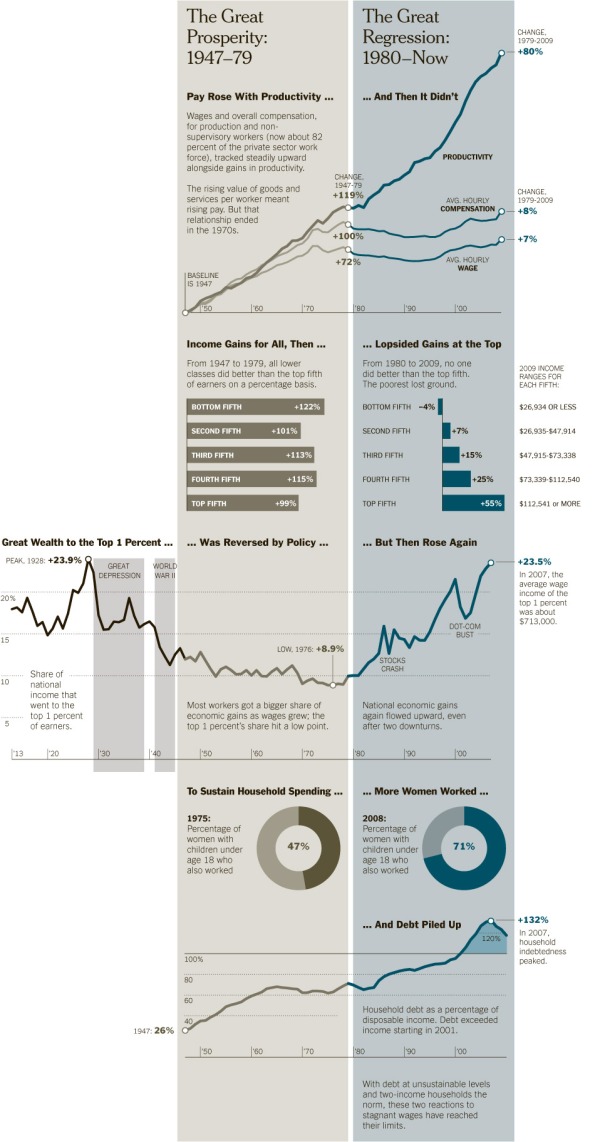
.
New Zealand followed half a decade later. We now face our own social fall-out from the introduction of neo-liberalism; high-unemployment; under-employment; unaffordable housing; low wages; student debt; growing child poverty; and a widening wealth/income gap;
In its latest survey of household wealth, Statistics New Zealand found the country’s richest individuals – those in the top 10 percent – held 60 percent of all wealth by the end of July 2015. Between 2003 and 2010, those individuals had held 55 percent.
It is little wonder that with increasing globalisation, corporations have shifted jobs to developing nations where wages are low and working conditions next-to-nil.
Western workers have lost out to their counterparts in China, India, Pakistan, Vietnam, etc.
That has meant vast swathes of US industries closing down until major cities such as Detroit – once a major economic powerhouse for the nation – went bankrupt in 2013. Millions of workers have lost their jobs or have taken lower-paid employment.
The story of George and his family continues;
If there was any mercy in George’s death, it was that when it came, it was immediate. But in the weeks leading to it, there was much that was preventable.
When a persistent cough started nagging, he put it down to smoking. When the hacking began, a doctor’s charges and medicine costs were off-putting.
Finally, coughing and unable to breathe, he asked friends to take him to hospital. Some laughed it off as another prank.
“We didn’t find out he was sick until he’d been in hospital for three days,” Doris says. “We found out on Facebook.”
George had pneumonia. As he lay in a coma, the family assumed he was insured through his job and contacted his employer. Low-wage workers rely on employer-provided health care, or they go without.
“Applebee’s said he wasn’t eligible for insurance until next January, even though he’d been working there a year and a half,” Sherry said.
Frequent visits from the hospital’s “financial people” compounded their stress.
The family believe that if George had medical insurance, the hospital would have let him stay. Tests revealed he had an abnormal swelling in a heart blood vessel. Corrective surgery was scheduled for November 1, but the hospital sent him home.
“He was sent home with no medication,” Sherry says. “He couldn’t walk, his feet were still swollen. He tried to stand and he fell over.”
Private health insurance costs thousands of dollars a year in the US. Even the much-vaunted Obamacare seems to miss its targets.
“At first I thought Obamacare would be a good idea,” Doris says. “When they told me the price, $57 a week — it was $57 I didn’t have in the first place.”
The family has always voted Democrat. But this time it’s different. With worries about jobs, and living in quiet despair, the Republican candidate is winning her over.
George Tabor’s family was not alone. There were millions of George Tabor Families throughout the United States. And they were no longer listening to the political establishment.
In a moment of prescience, Billionaire investor Warren Buffett warned;
Americans are rapidly losing faith in the ability of Congress to deal with our country’s fiscal problems. Only action that is immediate, real and very substantial will prevent that doubt from morphing into hopelessness. That feeling can create its own reality.
Buffett wrote his words in August, 2011.
Since the late 1970s, both Republican and Democrat parties have failed to address the growing threat to Middle Class stability, and to Working Class aspirations in the US. Both parties had deserted their constituents, leaving people stressed, desperate, and fearful.
The forces of globalisation/neo-liberalism/free market has robbed millions of American families of what they considered their birthright – a high standard of living unparalleled in the world, and opportunities for their children.
.
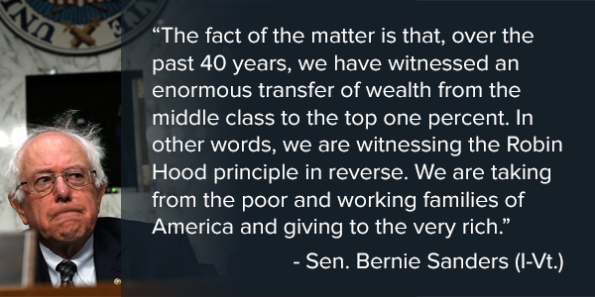
.
There was a vacuum left by the political establishment, and Donald Trump shrewdly colonised that space. Trump had created the new “reality” that Buffett warned us about.
The feeling of desperation and alienation from both Working and Middle classes is now so palpable that mainstream media are finally coming to terms with that disaffection and understand what constituted the almost-irresistable force that propelled an ego-driven, political novice to the White House.
Despite Trump being a seriously flawed, undisciplined individual who has alienated large numbers of American voters; women, blacks, Hispanics, LGBT, disabled – I think we all underestimated the anger of the Masses that Trump was feeding off.
I glimpsed a miniscule fraction of that anger last week when I watched ‘Sixty Minutes‘. A journalist was talking to five disaffected blue-collar workers in Ohio.
These were supposedly Democrat-voting, Union-loyal, workers.
But at least three openly declared their intention to vote for Trump (story starts at 25:12);
.

.
It was at that point that I finally understood what inexorable force was propelling a bloated billionaire to the most powerful position on this planet.
As former Republican Party operative, Mike Lofgren, wrote in September 2011;
It should have been evident to clear-eyed observers that the Republican Party is becoming less and less like a traditional political party in a representative democracy and becoming more like an apocalyptic cult, or one of the intensely ideological authoritarian parties of 20th century Europe. This trend has several implications, none of them pleasant.
[…]
What do the Democrats offer these people? Essentially nothing. Democratic Leadership Council-style “centrist” Democrats were among the biggest promoters of disastrous trade deals in the 1990s that outsourced jobs abroad: NAFTA, World Trade Organization, permanent most-favored-nation status for China. At the same time, the identity politics/lifestyle wing of the Democratic Party was seen as a too illegal immigrant-friendly by downscaled and outsourced whites.
While Democrats temporized, or even dismissed the fears of the white working class as racist or nativist, Republicans went to work.
Lofgren‘s entire piece is worthwhile reading.
So the ground was fertile for someone who would supposedly articulate the feelings of betrayal and loss for millions of disaffected, confused, resentful Americans.
People are pissed off, and they ain’t going to take it any more. They are fighting back. Like their British counter-parts during the “Bexit/EU” referendum, a considerable segment of American voters lashed out at “The Establishment”. It’s as if millions of Americans suddenly woke up, realising the supreme power of their vote.
The system could take away their jobs; their standard of living; their aspirations – but their right to vote was cast in granite-stone. Like their right to “bear arms” and casually shoot each other at whim, it was guaranteed by their Constitution.
Early last century, when Russians lashed out at the autocratic Establishment of the Russian royal family, they installed a far-left regime, the Bolsheviks.
But Americans don’t do left-wing revolutions.
When Americans revolt en-masse, they lurch to the Right.
In this case, a dangerously nationalistic, reactionary Right that is closer to the French National Front than the US Republican Party. (Though many would assert that the only real difference between the French National Front and the US Republican Party is that the latter is willing to tolerate immigrants for cheap, exploitable labour.)
Those who voted for Trump have done so for a myriad of reasons, many of which are fluid and inter-changeable. They see Trump as someone outside the political Establishment; someone who will be their champion.
But Donald Trump will not be that champion. Demogogues with simplistic answers to complex problems rarely are. History is replete with demagogues who have exploited peoples’ legitimate discontent to gain power and subsequently wreaked havoc.
If Americans think they have just elected the solution to their problems, they are sadly mistaken.
Their problems have only just begun.
Meanwhile, from a global perspective, the Left is confronted with a serious crisis of confidence: when Working Class people turn to jingoistic demagoguery for solutions, why is our message not getting through?
Perhaps that is the real crisis confronting us.
.
.
.
References
New York Times: The Limping Middle Class
International Monetary Fund (IMF): Transcript of a Press Conference on the Conclusion of the 2016 Article IV Consultation Mission with the United States
Youtube: Kansas Tax Cuts – A Closer Look
Motherjones: Trickle-Down Economics Has Ruined the Kansas Economy
The New Yorker: Covert Operations
CBS News: Kansas loses patience with Gov. Brownback’s tax cuts
Kansas City Star: Gov. Sam Brownback cuts higher education as Kansas tax receipts fall $53 million short
Bloomberg: Kansas Tried Tax Cuts. Its Neighbor Didn’t. Guess Which Worked
Democracy Now: Expanding the Debate – Jill Stein “Debates” Clinton & Trump in Democracy Now! Special – Part 1
NZ Kindergartens Inc: Funding cuts take effect
NBR: Leaked document shows 10 District Health Boards face budget cuts – King
Fairfax media: Police shut 30 stations in effort to combat budget cuts
Radio NZ: Patients suffering because of surgery waits – surgeon
NZ Family Violence Clearinghouse: Lead up to Budget 2016 – Govt announces funding cuts, increases and reprioritising
Radio NZ: Funds cut from parents-as-teachers scheme
TVNZ News: Kiwi charities and NGOs face closure with impending funding cuts
Radio NZ: Unemployment rises, wage growth subdued
ABC News:US election: Life and death in Georgia and the end of the American Dream
US Census Bureau: Income, Poverty, and Health Insurance Coverage – 2015
USA Today: Detroit becomes largest U.S. city to enter bankruptcy
Radio NZ: 10% richest Kiwis own 60% of NZ’s wealth
Truthout: Goodbye to All That – Reflections of a GOP Operative Who Left the Cult
The New York Times: Stop Coddling the Super-Rich – Warren Buffett
Prime TV: Sixty Minutes
Other Blogposts
Bowalley Road: Clever Strategy vs Desperate Tactics – Hillary Clinton Allows Donald Trump To Survive The Second Presidential Debate.
Bowalley Road: Raising Nixon’s Ghost
Bowalley Road: Why the Greater Good requires Americans to vote for the Lesser Evil – Hillary Clinton
Bowalley Road: The Better Angel: Why Birgitte Nyborg Beats Donald Trump
Gordon Campbell: on the US election home stretch
Kiwipolitico: Social origins of the Politically Absurd
No Right Turn: This is not what democracy looks like
Public Address: The Long, Strange Trip
The Daily Blog: LaQuisha St Redfern vs Donald Trump
The Daily Blog: The horror of Clinton winning vs the horror of Trump winning – voting for the lesser of two evils is still voting for evil
The Daily Blog: American Demockery
The Daily Blog: The latest Trump/Clinton machinations and why gender is the real societal fault line this election
The Daily Blog: Fear And Loathing Of A Democratic Presidency: Where To For The American Left
The Standard: Trump final campaign ad
The Standard: Donald Trump is good
The Wireless: Uncovering the art of an ugly election
Previous related blogposts
Letter to the editor – Donald Trump and the lessons of history
Dumber and dumber, scarier and scarier
When Fact Follows Fiction – The Weird World of U.S. Politics
Trump – the cultivation of demagoguery
Black Ops from the SIS and FBI?
.
.
.
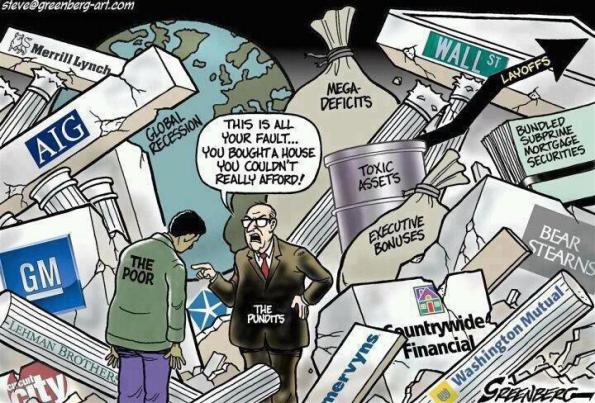
.
This blogpost was first published on The Daily Blog on 10 November 2016.
.
.
= fs =


